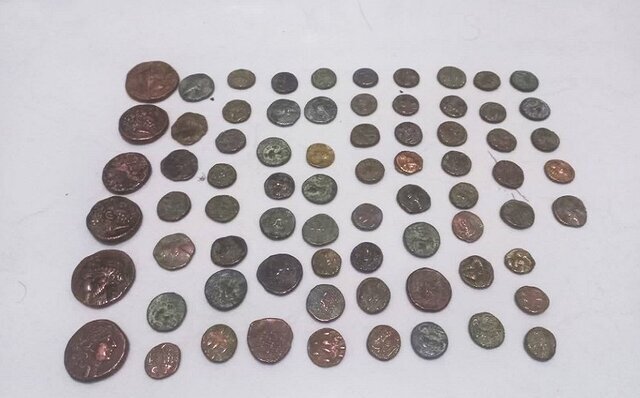Iranian authorities seize Parthian coins from train passenger

TEHRAN - In a most recent move to safeguard ancient heritage, Iranian railway police have confiscated 73 coins dating back to the Parthian era from a passenger at Andimeshk railway station.
On Wednesday, Heshmatollah Maleki, the head of the railway police, announced that the recovery was made during a routine X-ray inspection of the passenger's belongings, which revealed the coins expertly concealed within a bag.
Regarding the value of the coins, Maleki further explained that the cultural heritage experts in Andimeshk have verified the coins as authentic relics from the Parthian period, with an estimated worth of two billion Rials [approximately $4000].
The passenger, whose identity has not been disclosed, was detained and has been transferred to the police headquarters for legal proceedings, according to the commander.
“During the investigation, the accused offered a bribe to the officers,” Maleki added. “Proposing to hand over all the seized coins in exchange for his release.”
This attempt has been formally recorded in his file, the commander additionally explained.
Maleki also brought to light that further inquiries revealed the individual had a prior criminal record. “Following his confession to the crime,” the commander winded up. “He was transferred to the prosecutor's office to face charges related to the possession and attempted smuggling of historical relics.”
The Parthian Empire, also known as the Arsacid Empire, was a major Iranian political and cultural power in ancient Iran. The Parthians largely adopted the art, architecture, religious beliefs, and royal insignia of their culturally heterogeneous empire, which encompassed Persian, Hellenistic, and regional cultures. At its height, the Parthian Empire stretched from the northern reaches of the Euphrates, in what is now central-eastern Turkey, to eastern Iran.
Leave a Comment